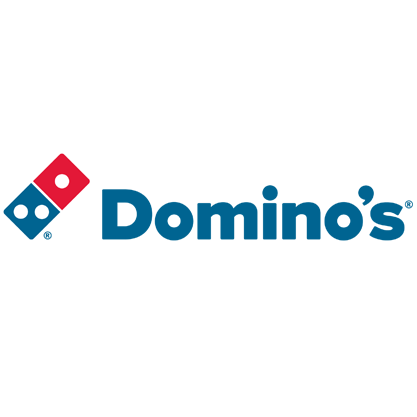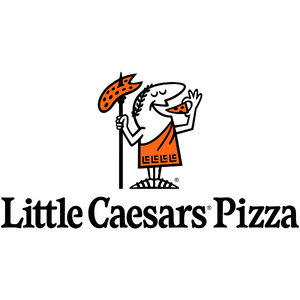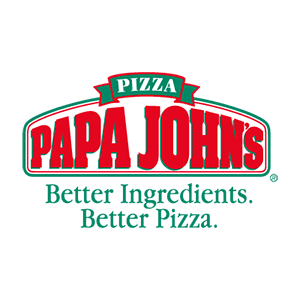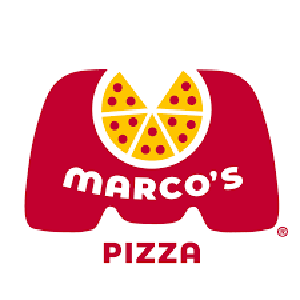Jet’s Pizza Franchise in 2025: Costs, Fee & FDD
Ready to invest in a pizza franchise? Discover the ins and outs of opening a Jet’s Pizza franchise, from initial inquiry to grand opening. Uncover the pros, cons, and what sets this brand apart.

Table of Contents:
Jet’s Pizza, a beloved brand in the pizza industry, was founded in 1978 by brothers Eugene and John Jetts in Sterling Heights, Michigan. Initially, the restaurant offered a menu of deep-dish square pizzas, which became an instant hit and set Jet’s apart in the competitive pizza market. Over the years, Jet’s Pizza has grown to become one of the top pizza franchises in the United States, known for its quality ingredients, innovative menu, and exceptional customer service.
Jet’s Pizza is best known for its signature deep-dish square pizza, which is complemented by a wide range of menu items, including hand-tossed round pizzas, Jet’s Bread, Jet’s Wings, and Jet’s Boats. The brand focuses on providing delicious, high-quality food at an affordable price, catering to families, individuals, and groups looking for a satisfying meal. Jet’s core customer base includes pizza enthusiasts who appreciate the brand’s commitment to fresh ingredients and innovative flavors.
Today, Jet’s Pizza operates over 400 locations across 20 states, with a strong presence in the Midwest. The franchise has continued to expand its footprint while maintaining a loyal customer base that keeps coming back for the delicious square pizzas. The company offers comprehensive support to its franchisees, including a robust training program, ongoing marketing support, and access to a proven business model. This support, combined with the brand’s strong reputation, makes Jet’s Pizza a popular choice for potential franchisees looking to enter the pizza industry.
Jet’s Pizza Franchise Insights
- Jet’s Pizza has built a strong reputation for its unique square pizzas, helping it stand out in the crowded pizza industry. The brand is well-recognized and has a loyal customer base, particularly in the Midwest.
- The Franchise has seen steady growth, with over 400 locations in 20 states, reflecting its successful franchise model and the demand for its product.
- They are known for their commitment to using fresh, high-quality ingredients, which has been a key factor in their success and customer satisfaction.
- With a low 3-year failure rate of 1%, Jet’s Pizza stands out as a more stable franchise in an industry that has a 3-year failure rate of 11%
Jet’s Pizza Franchise Key indicators
Growth YOY (%)
3%
vs industry 1%
Total U.S. Franchised Units
369
3-Year Failure Rate
1%
vs industry 11%
Sales-to-Investment ratio
1.4:1
How much does it cost to open a Jet’s Pizza franchise?
Understanding the potential investment size and capital requirements is crucial when considering opening a Jet’s Pizza franchise. These financial commitments, including initial franchise fees, equipment costs, and ongoing operational expenses, impact the feasibility and profitability of the venture. Thoroughly evaluating these factors ensures that potential franchisees are prepared for the financial responsibilities and can make informed decisions about their ability to sustain and grow the business, ultimately contributing to long-term success.
Min & Max Investment
Opening a Jet’s Pizza franchise involves several key costs, which are outlined in Item 7 of the Franchise Disclosure Document (FDD). You can see a breakdown of the costs to open a Jet’s Pizza below from the most recent Item 7 below:
| Type of Expenditure | Minimum Investment | Maximum Investment |
|---|---|---|
| Initial Franchise Fee | $15,000 | $30,000 |
| Travel and Living Expenses while Training | $9,000 | $15,000 |
| Security Deposit | $4,000 | $10,000 |
| Rent - 3 Months | $7,500 | $20,000 |
| Blueprints | $10,000 | $15,000 |
| Leasehold Improvements | $300,000 | $400,000 |
| Fixtures and Equipment | $175,000 | $225,000 |
| POS System | $20,000 | $30,000 |
| Computer Maintenance Costs | $1,500 | $2,000 |
| Miscellaneous Opening Costs | $3,000 | $6,000 |
| Opening Inventory | $12,000 | $14,000 |
| Insurance | $10,000 | $16,000 |
| Working Capital/Additional Funds - 3 months | $60,000 | $60,000 |
| Total Estimated Initial Investment | $572,500 | $786,000 |
Item 7 in the Franchise Disclosure Document (FDD) is the “Estimated Initial Investment” section. It outlines the total costs a franchisee can expect to incur when starting a franchise, including the initial franchise fee, equipment, inventory, real estate, and other startup expenses. This section is crucial because it provides potential franchisees with a detailed understanding of the financial commitment required, helping them assess affordability and plan their investment strategy effectively.
Required Capital
To open a Jet’s Pizza franchise, prospective franchisees should be prepared for both the initial investment and ongoing financial requirements. Here’s a closer look:
- Initial Investment The total estimated initial investment ranges from $573,000 to $786,000. This includes startup costs such as the franchise fee, real estate, construction, equipment, initial inventory, and additional funds for initial operating expenses. Assuming that you will finance your franchise investment, you should plan to have 20% of the total investment amount in the form of equity (cash) for the investment.
- Liquid Assets Requirement Jet’s Pizza typically requires franchisees to have a minimum of $250,000 in non-borrowed personal resources (liquid assets) to ensure they can cover unforeseen expenses and maintain financial stability during the startup phase.
- Net Worth Requirement While specific net worth requirements may vary, it’s generally recommended that franchisees have a net worth of at least $500,000, including assets like real estate, investments, and personal property.
How much does a Jet’s Pizza franchise owner make?
Calculating the salary of a Jet’s Pizza franchise owner involves analyzing gross sales to determine total revenue, assessing operational efficiency to understand profit margins, and accounting for franchisor fees and additional expenses such as rent, utilities, and payroll. Effective management of these factors can significantly impact the profitability and financial success of a Jet’s Pizza franchise owner. This comprehensive financial analysis helps estimate net profits, from which the owner’s salary can be derived. A clear understanding of these factors ensures accurate salary projections and financial planning for sustainable business operations.
Jet’s Pizza Revenue & Gross Sales
Based on most recent analysis, Jet’s Pizza franchises have demonstrated consistent financial performance. For example, the average gross sales for Jet’s Pizza franchises were reported at $951,282, with a slight increase in earnings for owner-operators. This stability highlights the potential for steady income generation for franchisees in the pizza industry.
Which key factors impact the average revenue performance of Jet’s Pizza franchisees?
Several factors contribute to the revenue performance of Jet’s Pizza franchisees. The brand’s commitment to high-quality ingredients and consistent product offerings has helped maintain customer loyalty, driving repeat business. Additionally, Jet’s strong marketing efforts, including digital and social media campaigns, have increased brand visibility and attracted new customers. The franchise’s operational efficiency and focus on customer satisfaction also play a significant role in boosting sales and revenue.
Jet’s Pizza Franchise Operational Costs
Running a Jet’s Pizza franchise involves various ongoing operational costs that are essential for maintaining the business and ensuring its smooth operation. These include:
- Food and Beverage Costs Expenses for purchasing fresh ingredients like dough, cheese, meats, and vegetables necessary for pizza preparation.
- Labor Costs Wages, salaries, and benefits for employees, including kitchen staff, delivery drivers, and managers.
- Rent or Mortgage Payments Costs associated with leasing or owning the property where the franchise is located.
- Utilities Expenses for electricity, water, gas, and internet necessary to run the restaurant.
- Maintenance and Repairs Costs for the upkeep of kitchen equipment, fixtures, and the building itself.
- Supplies and Inventory Includes kitchen supplies, cleaning products, and inventory management costs.
- Marketing and Advertising Fees Contributions to national and regional advertising funds to support ongoing marketing campaigns.
- Insurance Various insurance policies, including property and liability insurance, to protect the business.
- Technology and Equipment Expenses for maintaining and upgrading point-of-sale systems and other technology used in the restaurant.
Running a Jet’s Pizza franchise comes with a variety of ongoing costs that are crucial to the successful operation of the business. By carefully managing these expenses, franchisees can ensure their restaurant runs efficiently, meets customer expectations, and remains profitable. Staying on top of these operational costs is key to maintaining the quality and service that Jet’s Pizza is known for, ultimately driving long-term success in this competitive industry.
Jet’s Pizza Franchise Fees
Owning a Jet’s Pizza franchise involves several ongoing fees that are essential for the operation of the business. These fees are critical for maintaining brand standards, supporting marketing efforts, and ensuring operational efficiency. Here’s a breakdown:
- Royalty Fee Franchisees are required to pay a monthly royalty fee of 12% of acquired inventory, with a minimum of $1,200 per month. This fee helps cover the ongoing support and resources provided by Jet’s Pizza to its franchisees.
- General Advertising Fund Up to 10% of acquired inventory is contributed to the general advertising fund on the 15th of each month, helping to support national marketing efforts.
- Regional Advertising Fund Contributions to the regional advertising fund vary, with some regions charging 25¢ per box purchased or a weekly flat fee ranging from $0 to $1,000. These contributions help fund regional advertising initiatives, such as TV, social media, digital, or radio ads.
- Additional Fees Franchisees may also be responsible for additional fees related to training programs, technology, and other items provided by Jet’s Pizza.
These fees are crucial for maintaining the Jet’s Pizza brand, supporting ongoing marketing campaigns, and ensuring operational success across all franchise locations.
Jet’s Pizza Franchise Earnings
The earnings potential for a Jet’s Pizza franchise can vary depending on factors such as location, sales volume, and operational efficiency. However, based on recent data, Jet’s Pizza franchises have reported median gross sales of $951,282.
Owner-operators typically see earnings of $142,692 (at a 15% operating profit margin), while semi-absentee owners might earn around $114,154. These figures underscore the potential for significant income generation in the pizza franchise industry, provided the business is managed effectively and operational costs are controlled.
How to Open a Jet’s Pizza Franchise
Becoming a Jet’s Pizza franchisee is a step-by-step process designed to ensure both the franchisor and the franchisee are well-prepared for success. Here’s how to get started and what to expect:
- Initial Inquiry You or your franchise specialist submits an initial inquiry basic information about your interest and background. You should also conduct thorough research on the franchise, including seeing all of the information available on the Vetted Biz franchise intelligence platform, including access to the most recent Franchise Disclosure Document (FDD).
- Application Once your inquiry is reviewed and accepted, you’ll be asked to complete a detailed application. This will cover your personal and professional background, financial situation, and motivations for becoming a Jet’s Pizza franchisee.
- Interview Process If your application meets the requirements, you’ll move on to the interview stage. During this phase, you’ll engage in phone and in-person interviews with Jet’s Pizza representatives. These interviews are designed to assess your business experience, leadership abilities, and alignment with the Jet’s Pizza brand and culture.
- Background and Financial Check A thorough background and financial check is conducted to ensure you meet Jet’s Pizza’s franchisee standards. This step ensures that you have the financial stability and character required to run a successful franchise.
- Approval After passing the evaluation process, you’ll receive approval to become a franchisee. At this stage, discussions regarding potential locations for your Jet’s Pizza restaurant will begin.
- Training Program Before you can open your doors, you’ll participate in a comprehensive training program. This training covers all aspects of operating a Jet’s Pizza franchise, including food preparation, customer service, management, and daily operations.
- Site Selection and Build-Out Jet’s Pizza’s corporate team will assist you in selecting an optimal location and managing the build-out of your restaurant. They will help ensure that the construction and setup meet the brand’s standards.
- Pre-Opening Preparation During the build-out phase, you will continue your training, hire staff, set up supply chains, and plan your marketing strategies to ensure a successful launch.
- Grand Opening Once your restaurant is fully built and equipped, and your team is ready, you’ll have your grand opening. Jet’s Pizza provides support to help you achieve a smooth and successful launch.
- Ongoing Support After opening, you’ll continue to receive support from Jet’s Pizza’s corporate team. This includes marketing assistance, operational guidance, and regular evaluations to ensure your franchise thrives.
Pros & Cons
Pros
Brand Recognition: Jet’s Pizza has established a strong brand presence, especially in the Midwest, known for its signature Detroit-style deep-dish pizza, which can attract a loyal customer base.
Proven Business Model: With decades of experience in the pizza industry, Jet’s Pizza offers a well-established business model with operational systems designed for efficiency and profitability.
Menu Innovation: Jet’s Pizza continues to innovate its menu, offering a wide variety of pizzas, salads, and subs, catering to diverse customer preferences.
Cons
Operational Demands: Running a Jet’s Pizza franchise requires a hands-on approach, especially during the initial years, which can be demanding in terms of time and effort.
Regional Limitations: While Jet’s Pizza has a strong presence in certain regions, expansion into new or less familiar markets might pose challenges in brand recognition and customer base establishment.
Economic Sensitivity: As with many food service businesses, Jet’s Pizza franchises may be sensitive to economic downturns and shifts in consumer spending habits.






